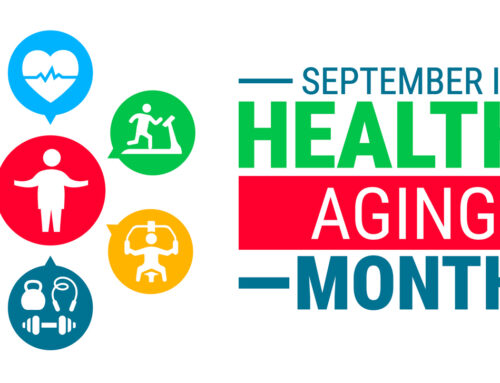A senior’s diet must include more nutrients and have more restrictions
The short answer, of course, is yes.
As people age, there are few things that stay the same. We move a little slower, sleep a bit less consistently, and we are constantly told to make changes to our diet. Doctors will typically recommend a well-balanced diet for older adults, meaning regular servings of fruits, vegetables, proteins, plant- or fish-based fats, and whole grains to maintain overall good health. Although sticking to a healthy diet is something we’ve been told to do throughout our life, age-related changes in the body make these healthy choices even more important.
How does your body change as you age?
Generally, your digestive system shifts, your immune system becomes weaker, and your metabolism slows. As individuals grow older, the body produces less fluids, which are needed to process food in the digestive system. These changes make it more difficult for the body to process necessary nutrients such as folic acid and vitamin B12. When the metabolism slows down, less food is needed to maintain a healthy weight – especially if you don’t exercise as often as you should.
The National Institutes of Health (NIH) recommends that women over 50 eat a total of 1,600 calories a day if they lead a generally sedentary lifestyle and up to 2,200 calories if they’re fairly active. For men over 50, the NIH recommends consuming about 2,000 calories daily for those who have low activity levels and up to 2,800 calories for those who lead active lifestyles.
In addition to changes in the digestive system and metabolism, seniors who take medications for health conditions can suffer from loss of appetite or upset stomach as a side effect. This can cause their appetite to change and encourage poor or haphazard eating habits.
What types of foods should a senior include in their diet?
In order to maintain a healthy diet, seniors should prioritize the following nutrients, among others:
Omega-3 fatty acids: These acids are known to reduce inflammation and are correlated with a lower risk of chronic diseases, including heart disease and arthritis. Omega-3 fatty acids can be found in fish, walnuts, and nut oils. The American Heart Association (AHA) recommends eating foods rich in omega-3 at least two times per week.
Calcium: Calcium has always played an integral role in diet and becomes even more essential as we age. Calcium is known to help lower blood pressure and maintain bone health. High levels of calcium can be found in milk (whole, almond, and soy), various vegetables like kale, and fortified orange juice. The NIH recommends that people over 50 get at least 1,000 mg of calcium per day and people over 70 get 1,200 mg per day.
Potassium: Increasing potassium consumption (along with reducing sodium/salt intake) can help lower the risk of and control high blood pressure. Foods high in potassium include fruits, vegetables, and yogurt.
Of course, these nutrients are the tip of the iceberg when it comes to eating a healthy diet. The general rule of thumb is to get enough protein (current guidelines estimate 0.8 grams of protein per kilogram of body weight for all adults, but some argue seniors need more), prioritize plant-based vs. saturated animal fats, and eat fruits, vegetables, and whole grains. In addition, the more whole foods (vs. processed), the higher the benefits for a body.
How does a senior manage a healthy diet?
The US Department of Agriculture (USDA) Food Patterns recommends that people over 50 manage their caloric intake in addition to incorporating nutrient-rich foods into their diet. The USDA also strongly recommends avoiding foods high in sodium or with added sugars. Of course, if an individual has other health issues like diabetes, a diet will need to be even stricter.
Seem like a lot of work? It’s not terribly difficult to manage a healthy diet, but it does take diligence.
And as many people age, added help is needed. When you can’t give your aging loved one the help they need to eat healthy meals, find someone who can. If your loved one lives in Broward, Palm Beach, St. Lucie, Indian River, or Martin County, look no further than FirstLantic Healthcare.
Our home health aides have been providing healthy, home-cooked meals and the highest level of home health care services to our clients since 2000. Call us today at 877-618-3624 or fill out our online contact form to learn more.
 AVAILABLE 24 HOURS A DAY/7 DAYS A WEEK
AVAILABLE 24 HOURS A DAY/7 DAYS A WEEK Careers
Careers







